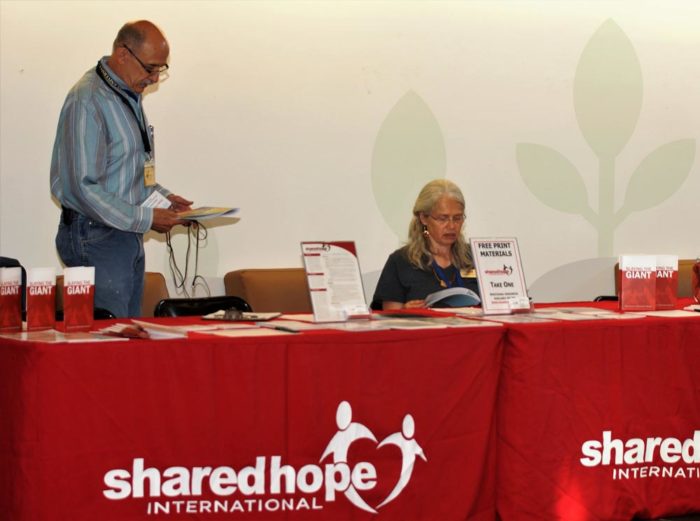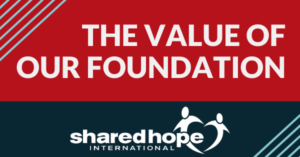By Butch and Jean Fitzpatrick
As Ambassadors of Hope, we spend time proactively communicating, giving out resources, sharing about DMST and the work of Shared Hope International, and make ourselves available for prevention and awareness but we don’t always get to see the seeds we plant sprout into action.

In September 2018 we spent time in Upper MI, responding to the urgent needs of an 18 year old survivor and seeking police rescue, health care, and legal support. That day we visited different government and health service organizations as well as law enforcement. Sharing what we do, explaining the situation and the need, and giving SHI resources. As part of that day we visited with the MI State Police post in Wakefield, MI. As we talked to the duty officer, giving him a number of resources (which we always have with us), we explained how we use the “Chosen” film in our prevention/awareness presentations. The officer was very interested and said MI had a Human Trafficking Liaison officer and he would make sure to give him the information. We hoped he would.
With Shared Hope’s support, we had communicated with the State and sent them info on what tools were available to possibly meet their certification requirements for dentists. It required multiple follow up phone calls to different State Offices giving them information on the i:Care materials that had just been released.
In a circuitous way, during an annual check-up at the dentist, our hygienist told us that she had attended a “packed” community prevention/awareness event in Wakefield hosted by the MI State Police and they used “Chosen” as part of their presentation. Our hygienist said that attending this presentation met the requirement for her, where dental staff need HT awareness training for license or re-license in the state of MI.
It was so rewarding to hear that the State Police had picked up on what SHI had given them and are now using it to help educate citizens as well as professionals.
Just had to share this good news.
Butch
Learn more about our Ambassador of Hope program today, including how you can become our newest Ambassador!








